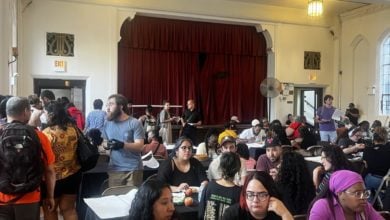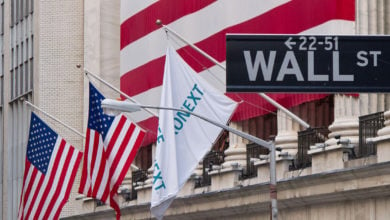Globally, news of a growing number of cases and countries with coronavirus disease 2019, named COVID-19, has raised fear, anxiety and concern around the world. The World Health Organization and national bodies like the Centers for Disease Control and Prevention at this time have not declared a global pandemic, which would indicate the virus is found on all seven continents. As of this writing, there are over 90,000 cases found in 77 countries. Close to 3,200 of the known cases have died. Over 90 percent of cases and deaths have been in China, with Hubei province the epicenter of the disease.
Courageous and dedicated medical and public health workers around the world are employing tried and true public health practices to contain the virus, limit transmission and identify, isolate and treat persons infected.
There is work being carried out globally to understand the level of infectivity of the virus, its routes of transmission and to find a vaccine and treatment. Much of the recommendations coming from public health organizations are based on the world’s knowledge of similar viruses, SARS and MERS.
A Feb. 24 U.N. News article quoted WHO Director-General Tedros Adhanom Ghebreyesus: “For the moment, we are not witnessing the uncontained global spread of this virus, and we are not witnessing large-scale severe disease or death,’ he said, adding that what is occurring are Coronavirus epidemics in different parts of the world, “which are affecting countries differently.”
The article indicated the spread of the disease was slowing in China, “…the epidemic peaked and plateaued between 23 January and 2 February, and has been declining steadily ever since.”
In the United States, as of March 4, the CDC has reported a total of 80 cases with nine deaths in 13 states. Fear of spread of the virus has been amplified by the tragic outbreak at the Life Care Center in the city of Kirkland in Washington state where dozens of residents and workers were infected, resulting in nine deaths. In an unjustified panic to the state’s declaration of emergency, people have emptied out the supplies of water, toilet paper, disinfectant, masks and other items from big-box stores in the event quarantine measures are taken to stem the spread of the virus.
Federal and state public health agencies have moved to protect the public and minimize the impact of the virus. The one obstacle these agencies will not tackle is the corporate wealth before people’s health nature of the capitalist system.
Unlike in China where e-commerce platforms forbade increasing the price of N95 masks at onset of the epidemic, stories abound in the U.S. media of the quadrupling of prices of these masks in the past month. While the stock market has tumbled from fears of economic contraction resulting from COVID-19, 3M stocks jumped the day after President Trump’s news conference where he announced 3M had been contracted to produce 35 million masks a month.
People are told to stay at home if they exhibit any of the symptoms associated with COVID-19, cough, fever or shortness of breath. For workers who have no sick days, often the lowest paid, they risk loss of pay and the possibility of job loss. Given that choice, there really is no choice, but to go to work. If the virus spreads and quarantine measures of entire cities are mandated, those who live paycheck-to-paycheck will be disproportionately affected by the loss of income. Will utility companies be banned from shutting off heat and electricity during a quarantine? Will there be a ban on evictions and foreclosures?
Based on who has gotten sick and the severity of the illness, people with underlying health issues, like the elderly, are more susceptible to the Coronavirus. What happens if the virus starts manifesting itself in people who are homeless, a population with multiple underlying health issues? Will the federal, state and local governments declare a state of emergency and house the homeless in the millions of empty housing units across the country?
The lack of a universal health care system in one of the most developed capitalist countries is one of the main obstacles to improving the health of society. A health care system that is a universal right to all persons living in the United States would benefit every single person in this country personally and collectively: It would insure access to health care and eliminate the major cause of bankruptcy, i.e., unaffordable medical bills. In response to a potential epidemic as is could happen with COVID-19, a centralized system to facilitate the protection of the public and the treatment of the exposed would not have to face a maze of privately owned insurance companies, health care corporations and pharmaceutical companies whose main goal is the maximization of profit at the expense of the people.
So far, it appears the Coronavirus is being contained in the United States, sparing the population the effects that have afflicted people in China, Iran, South Korea, Italy and elsewhere. If the virus spreads, it will expose the population to another deadly disease: Capitalism.






